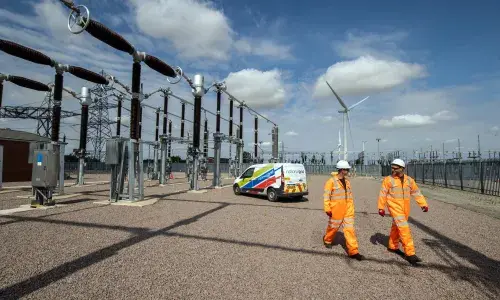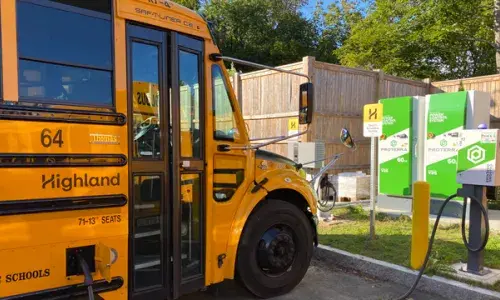
The decarbonisation opportunity
Following the announcement of the 10-Point Plan, the Government has set a new target for carbon emissions to reach 68% of what they were in 1990 by the end of 2030. Here Duncan Burt, our Chief Sustainability Officer, shares his thoughts on what this means for the UK’s journey to net zero.
Coming hot on the heels of the 10-point plan, this is a significant announcement for the UK. The new target allows BEIS, the COP President and the Prime Minister to draw an important line in the sand internationally; and signpost a clear path forward in the UK regarding our commitment to tackling climate change by reducing carbon emissions.

My initial reaction to the announcement is that it’s designed for an international audience. The 68% target is positioned as ambitious, but for the UK, the fastest decarbonising economy in the G20, some might say it’s not ambitious enough.
Whatever your view, it’s sufficiently challenging that it sets a clear downwards trajectory for the UK’s carbon emissions. That’s as it should be for a country with such a fabulous offshore wind resource. It also sets the tone for the coming months, ahead of the UN Climate Ambition Summit later this month and COP26 in November 2021.
It’s heartening to see the critical role the Climate Change Committee (CCC) is playing in shaping policy and driving decarbonisation in the UK. I see its role as like the one played by the Bank of England on fiscal policy; as the CCC can offer government the authoritative advice, backed by expert thinking and research, required to make important decisions about how the UK tackles climate change.
Delivery is key
In the UK we’re eagerly awaiting the publication of the Energy White Paper, but what’s already clear is that delivery is key to achieving our net zero ambitions. The construction of offshore wind farms and the roll-out of a charging infrastructure for EVs needs to continue at pace, which is supported by existing policy.
But the current delivery plan is just the start. There’s a continued need to evolve land use to ensure carbon emissions are absorbed and retained by the natural environment, and that flooding risk is reduced. Government and industry also need to work together to deliver solutions for low-carbon heating. I would also have welcomed the inclusion of targets on the decarbonisation of international aviation and shipping, and hope to see them added as we get closer to COP26.
From challenge to chances
Overall, my feeling following the government’s announcement is that it’s great to see the narrative around decarbonisation shift away from it being seen as a costly challenge and towards realising the opportunity for investment and jobs. Global decarbonisation is underway and the nations and regions of the UK are well placed to be leaders in this positive transformation.


